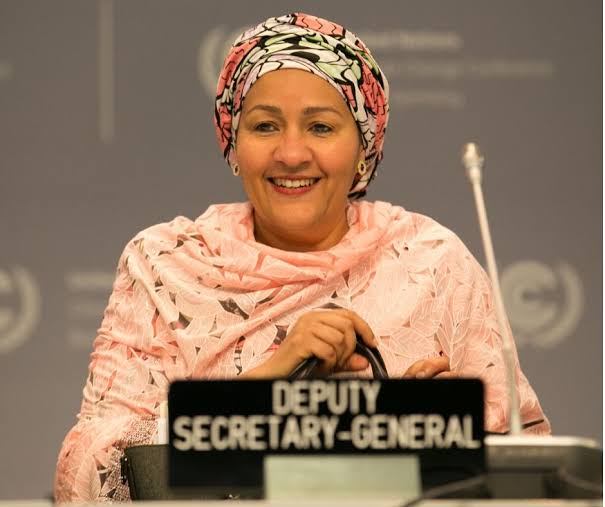Amina Mohammed, the United Nations Deputy Secretary-General, has paid an official visit to her home country of Nigeria.
According to the Secretary-spokesman, General’s Stéphane Dujarric, Mohammed left New York for Nigeria on Tuesday evening.
On Tuesday, Dujarric told reporters at the UN headquarters that Mohammed would meet with senior government officials during her visit.
According to the spokesman, the Nigerian-born UN official will also meet with the UN Global Compact private sector network and the UN team on the ground.
“She will speak about a variety of development issues, including the acceleration of the Sustainable Development Goals and climate change,” he said.
Dujarric provided an update on the humanitarian situation in Ethiopia, stating that the World Food Programme (WFP) reported four convoys carrying humanitarian aid had arrived in Mekelle, Tigray.
Those arrivals, he claims, have occurred since November 25.
“More than 150 trucks have arrived thus far, with WFP sending in more on a daily basis to meet the overwhelming needs of Tigray’s 5.2 million people.”
“As you may recall, all roads into Tigray were closed for nearly a month due to clashes and a lack of necessary clearances.”
In Amhara, a WFP spokesman said that in the previous week, the organization had delivered food to 100,000 people in the towns of Dessie and Kombolcha.
He stated that these were the first distributions in these towns in nearly a month, and that the World Food Programme and its partners will deliver aid food to over 450,000 people in the next two weeks.
WFP, according to Dujarric, has stressed that the humanitarian response in Ethiopia is still threatened by insecurity, impeded road and air access, and a lack of fuel and cash.
“It calls on authorities to make it even easier to move supplies across battle lines and to provide access to those in need wherever and whenever it is needed.”
“The World Food Programme has more than 67,000 metric tonnes of supplies – roughly 1,700 truckloads – stored in northern Ethiopia.”
“This is more than enough food to feed 3.7 million people for two months,” he said, “but they are hampered by a lack of fuel and access to people in need.”
Concerning South Sudan, Dujarric stated that the UN Peacekeeping Mission (UNMISS) reported that the country was responding to the worst floods in six decades, noting that the flooding had resulted in the displacement of many people.
He claims that heavy rains this weekend rendered the main road connecting Bentiu to the airport and the UN Mission’s base impassable.
“With the assistance of the International Organization for Migration (IOM), the Mission’s engineering contingent immediately deployed heavy equipment and water pumps.”
According to Dujarric, the Mission also organized a conference in Bentiu to support the global 16 Days of Activism campaign against gender-based violence.
“More than 100 women leaders, community and traditional leaders, as well as youth representatives, participated in the event designed to encourage people to speak out and take action against gender-based violence,” he said.
